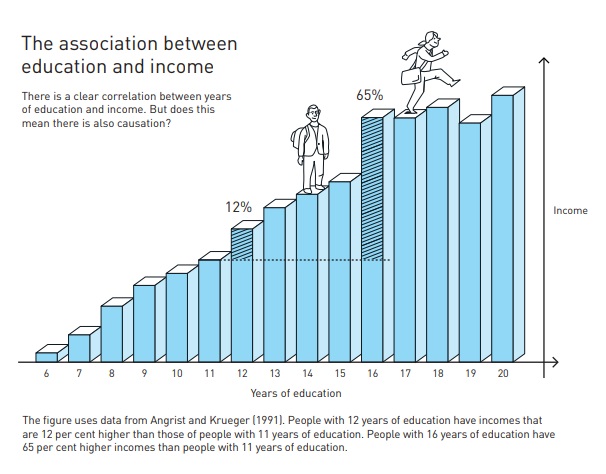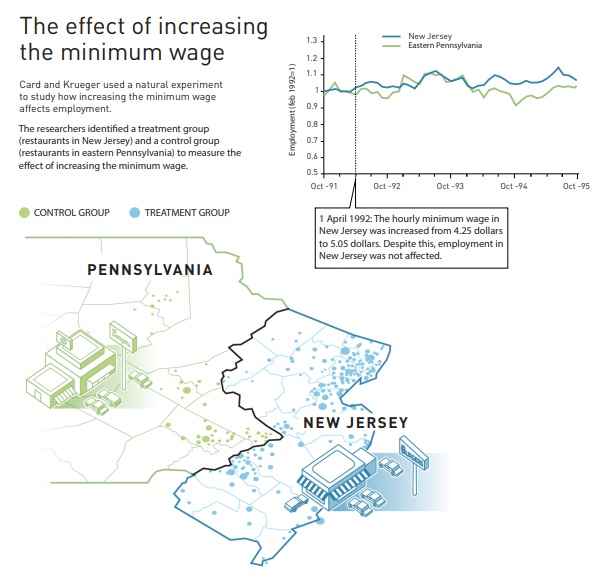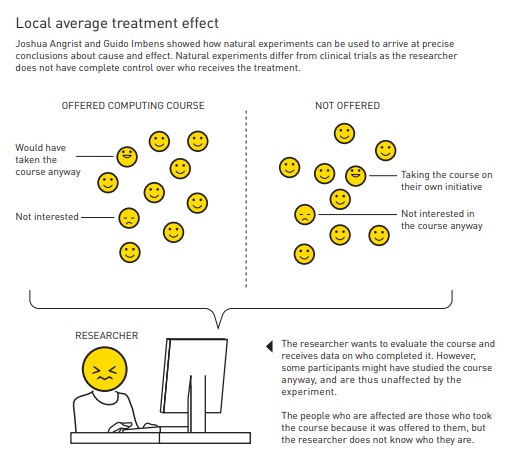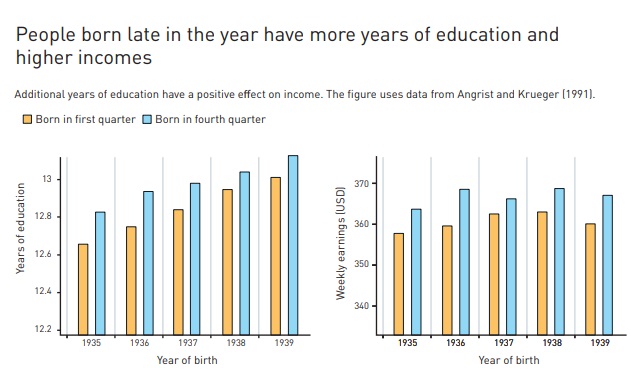Nobel Prize in Economic Sciences 2021 has been jointly awarded to David Card, Joshua D. Angrist and Guido W. Imbens. One half of the prize is awarded to David Card for his empirical contributions to labour economics, while the other half is jointly awarded to Joshua D. Angrist and Guido W. Imbens for their methodological contributions to the analysis of causal relationships.
2021 Nobel Laureates in Economic Sciences have provided us with the latest insights on the labour market and the cause and effect that can be drawn from natural experiments. Their approach has revolutionised empirical research.
BREAKING NEWS:
— The Nobel Prize (@NobelPrize) October 11, 2021
The 2021 Sveriges Riksbank Prize in Economic Sciences in Memory of Alfred Nobel has been awarded with one half to David Card and the other half jointly to Joshua D. Angrist and Guido W. Imbens.#NobelPrize pic.twitter.com/nkMjWai4Gn
Peter Fredriksson, chair of the Economic Sciences Prize Committee said, "Card’s studies of core questions for society and Angrist and Imbens’ methodological contributions have shown that natural experiments are a rich source of knowledge. Their research has substantially improved our ability to answer key causal questions, which has been of great benefit to society."
Natural Experiments of David Card, Joshua D. Angrist and Guido W. Imbens.
This year's Nobel Laureates in Economics have answered questions such as the effect of immigration on pay and employment levels, and the effect on the income of an individual due to long education using natural experiments.

David card analysed the labour market effects of minimum wages, immigration and education. His studies from the early 1990s concluded that increasing the minimum wage does not necessarily lead to fewer jobs.

Also, the incomes of people who were born in a country can benefit from new immigration, while people who immigrated at an earlier time risk being negatively affected. The results have also shown that the resources in schools are far more important for students’ future labour market success than was previously thought.

In the mid-1990s, Joshua Angrist and Guido W. Imbens demonstrated how precise conclusions about cause and effect can be drawn from natural experiments. For this, they solved the below methodological problem:
The two laureates drew conclusions about the effect of an extra year in school through natural experiments. They concluded that extending compulsory education by a year for one group of students (but not another) will not affect everyone in that group in the same way as some students might have kept studying anyway and, for them, the value of education is often not representative of the entire group.

About the winners
| David Card | Joshua D. Angrist | Guido W. Imbens |
| Born in 1956 in Guelph, Canada, David Card received his Ph.D. in 1983 from Princeton University, USA. He is a Professor of Economics at the University of California, Berkeley, USA.
| Born in 1960 in Columbus, Ohio, USA, Joshua D. Angrist received a Ph.D. in 1989 from Princeton University, USA. Currently, he is the Ford Professor of Economics at Massachusetts | Born in 1963 in Eindhoven, Netherlands, Guido W. Imbens received a Ph.D in 1991 from Brown Brown University, Providence, USA. At present, he is serving as the Applied Econometrics Professor |
| Facts about Nobel Prize in Economic Sciences A. 52 prizes in Economic Sciences have been awarded 1969-2020. B. 25 prizes in Economic Sciences have been awarded to one laureate only. C. 2 women have been awarded the prize in economic sciences so far-- Elinor Ostrom in 2009 and Esther Duflo in 2019. D. Esther Duflo is the youngest economic sciences laureate ever, her age was 46 years when he was awarded the prize. E. Leonid Hurwicz is the oldest economic sciences laureate ever, his age was 90 years old when he was awarded the prize. |
About Nobel Prize
Awarded in six different fields, viz. Physics, Chemistry, Physiology or Medicine, Literature, and Peace, Nobel Prize is one of the most prestigious awards in the world. The winner of the prize known as laureate takes home a gold medal, diploma and 10 million Swedish Kronor as prize money.
Sir Alfred Nobel’s will of 1895 has instructed the creation of the Nobel Prize to be accorded to individuals who have conferred the greatest benefit to humankind during the preceding year. The prize money comes from a legacy left by Alfred Nobel, the creator of the Nobel Prize.
Selection criteria
The eligible candidates are shortlisted by the nominators who are prominent academics working in the relevant fields and have received invitations from the Nobel Committee to submit the names for consideration.
For the Peace Prize, the inquiries are also sent to the government, former Peace Prize laureates, and current or former members of the Norwegian Nobel Committee. The winners of the Nobel Prize are selected by the prize-awarding institutions via a majority vote.
About Nobel Prize in Economic Sciences
The Nobel Prize in Economic Sciences, officially the Sveriges Riksbank Prize in Economic Sciences in Memory of Alfred Nobel, is an economics prize presented by the Nobel Foundation. The prize was established in 1968 and was first awarded in 1969 to Dutch economist Jan Tinbergen and Norwegian economist Ragnar Frisch for having developed and applied dynamic models for the analysis of economic processes.
Read more on Nobel Prize: Nobel Prize: History, Creation, Categories, Selection Process, and Winners
Nobel Prize 2021 schedule
It is to be noted that the Nobel Prizes will be announced from 4 October to 11 October 2021. Check the complete schedule below:
| 4 October 2021 | Physiology or Medicine |
| 5 October 2021 | Physics |
| 6 October 2021 | Chemistry |
| 7 October 2021 | Literature |
| 8 October 2021 | Peace |
| 11 October 2021 | Economic Sciences |
It is to be noted that today was the last day of the announcement of Nobel Prizes this year. To check the winners of this year's Nobel Prize winners, refer to the links below:
Nobel Prize in Physiology or Medicine 2021 jointly awarded to David Julius and Ardem Patapoutian
Comments
All Comments (0)
Join the conversation